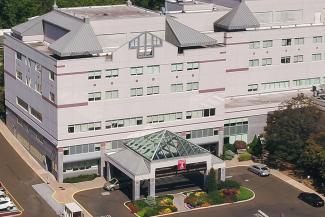A colectomy is a surgical procedure that removes part, or all, of your colon (large intestine). Doctors use this therapy to treat many types of intestinal conditions.
Colectomy
Conditions Treated
Diseases treated by colectomy include:
- Bowel obstruction – A medical emergency caused when a tumor, food or stool completely block your intestinal tract
- Colon cancer – Requires removal of a small or larger part of the colon, depending on how far cancer has progressed
- Fecal incontinence – Stool leakage
- Inflammatory bowel disease – Crohn’s disease, ulcerative colitis and other painful conditions
- Polyps or precancerous changes – Suspicious tissues found during a colon exam (colonoscopy)
- Severe bleeding – Sometimes requires removing part of the colon to stop the bleeding
Types of Colectomy
Talk with your doctor and care team to discuss procedures, benefits and risks. These depend on your condition and procedure. Types of colectomy include:
- Partial colectomy – Removes part of the colon
- Total colectomy – Removes entire colon
- Hemicolectomy – Removes right or left part of the colon
- Proctocolectomy – Removes colon and rectum
In some cases, you may be able to have a laparoscopic colectomy, which allows your surgeon to perform the procedure through small abdominal incisions rather than a traditional open surgery.
What to Expect
During your colectomy, your surgeon will likely need to perform other procedures to reattach parts of your digestive system in order to allow waste to leave your body.
Before surgery, your care team goes over these and other individualized instructions:
- Stop eating and drinking for a set time.
- Temporarily stop certain medications.
- Drink a solution or have procedures that empty your bowels.
- Possibly take antibiotics to prevent infection.
If you need an emergency colectomy for a perforated or blocked bowel, you may not have time to prepare and your care team will guide you.
After surgery, depending on your procedure, an ostomy nurse may show you how to change a colostomy bag (collects waste) and care for a stoma (surgically created opening).
An Experienced Colorectal Surgery Team
At Temple Health, our specialists work together to manage inflammatory bowel disease and other digestive conditions. We combine decades of focused experience and understand the sensitive nature of colorectal conditions. Doctors discuss your best options, including muscle-preserving procedures that help ease post-surgery lifestyle adjustments. You’ll receive high-level care that includes:
- Skilled teams – Some of the nation’s foremost doctors lead Temple colorectal surgery team. Our specialists routinely manage some of the most challenging cases. Learn about your doctors and care team.
- Research leaders – Temple Health clinical researchers are renowned in the medical community for pioneering treatments that enhance care. Specialists study therapies to improve care for people with all forms of colorectal and related disease.
- Comprehensive care – One of the region's most respected academic medical centers, Temple University Hospital offers exceptional cross-specialty care and Temple University Hospital – Jeanes Campus provides sophisticated surgical and oncology services in a convenient, community-based setting.
- Part of Temple Health, Fox Chase Cancer Center is a National Cancer Institute (NCI)-designated Comprehensive Cancer Center. It’s one of only 51 centers in the nation to qualify for this highest level of designation.
Ready for an Appointment?
Find a doctor near you, request an appointment, or call 800-TEMPLE-MED (800-836-7536) today.
Our Locations
The locations listed below are physician practices on Temple Health campuses. For a full list of providers, go to our Find a Doctor search.


